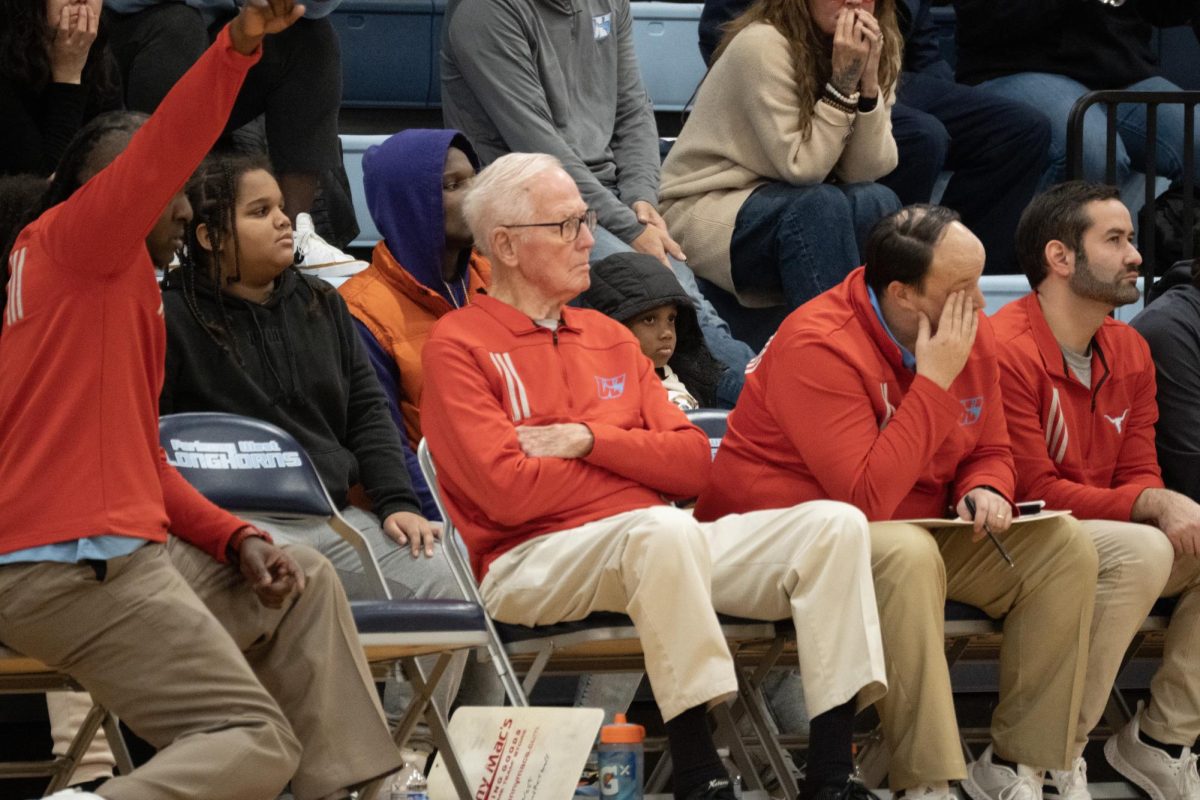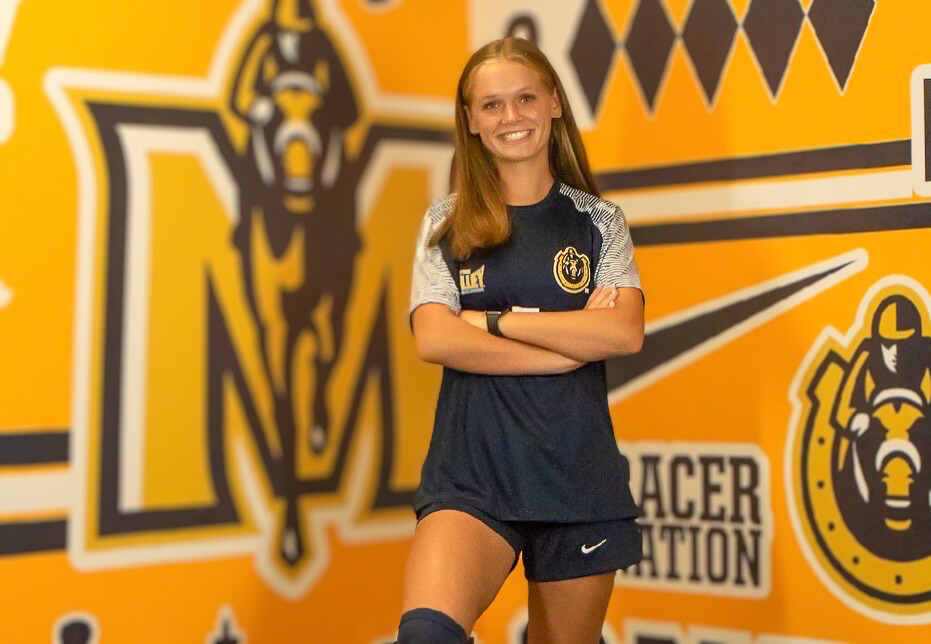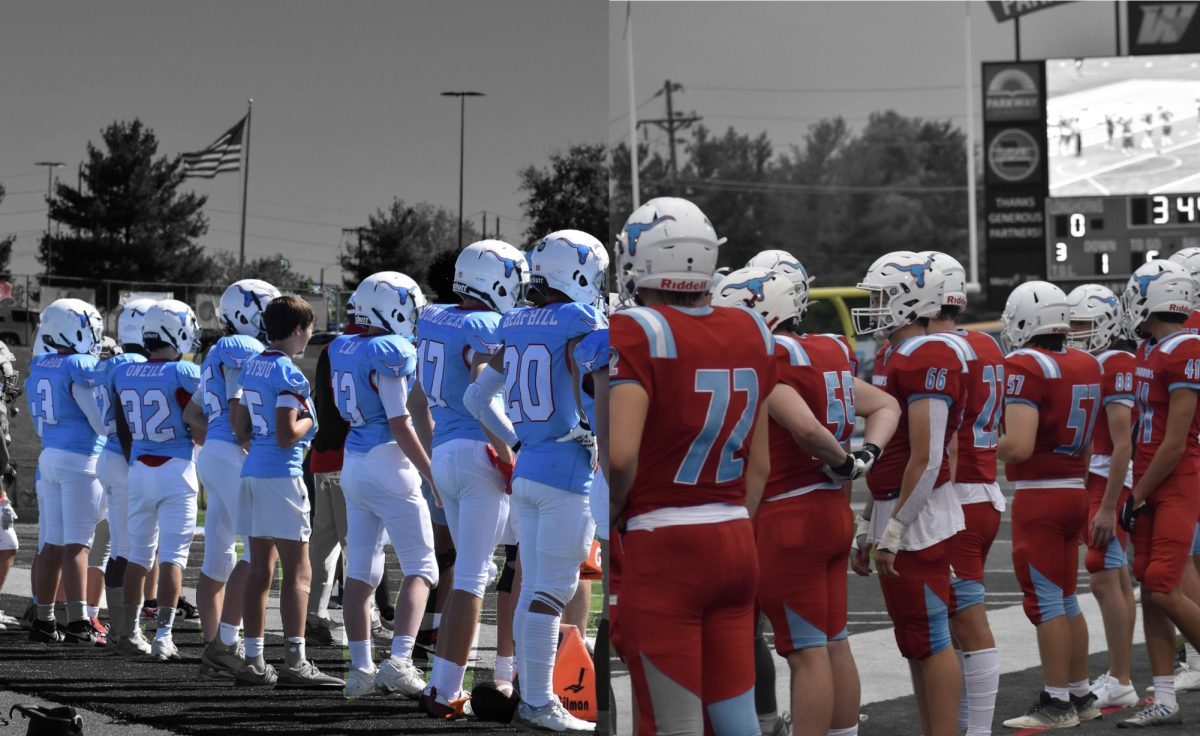With over 1000 participating colleges and almost half a million young adults under its umbrella, the National Collegiate Athletics Association pledges to inspire and support its “student-athletes.” But with scandals, backroom deals and huge stacks of money piling up in various sports, we have to wonder if the NCAA really are who we thought they were.
The NCAA has shown immense dedication to men’s college basketball and its March Madness tournament. The massive revenue from the Big Dance usually trickles down to executives in suits rather than to the players. But where there’s money, there tends to be greased palms. No one knows that fact better than the Federal Bureau of Investigation, so when wire fraud convict Marty Blazer offered the FBI his services as a college basketball informant in 2016 in exchange for a lighter sentence, they were interested.
One of the accusations against Blazer was for paying college athletes to employ him as a financial expert. Not only is this bribery wrong, but it exploits college athletes. With minimal income, athletes should not be coerced into participating in high-level schemes. The FBI used Blazer’s experience to fund a plot to funnel players into corrupt management agencies, then arrested anyone who accepted. Auburn University assistant coach Chuck Person was booked for accepting $91,500 to send players to the FBI-backed agencies. Emanuel “Book” Richardson, formerly an assistant at the University of Arizona, pleaded guilty to accepting thousands of dollars. Those two are just the beginning of a long list of cooperating coaches charged after the investigation.
Fortunately for the progress reports of involved FBI agents, the scheme did reveal a ton of corruption unrelated to itself: most glaringly, the misdeeds of shoe companies like Adidas, which poured money into basketball teams in exchange for brand loyalty. The University of Louisville, at the behest of coach Rick Pitino, arranged bribes from Adidas to pay recruits to play for the school. According to the NCAA’s rules, that’s very illegal. Accepting money made the players ineligible by removing their amateur status.
The prosecution in the case was tasked with making a violation of NCAA rules a federal crime. Prosecutors told the jury that because Louisville had a legal right to demand that their players were eligible, so making players ineligible by paying them was fraud. Basically, the argument was that when Louisville employees asked Adidas to pay players to go to Louisville, Louisville became the victim of a federal crime. In true college basketball fashion, Pitino’s coaching career recovered and he now coaches at St. John’s University. After the investigation, the NCAA took action to reduce the influence of the massive recruiting showcases run by corrupt shoe giants.
“For other sports, you go to showcases for college coaches. For golf, it’s kind of different because there are tournaments [instead]. It’s a huge part of how [any] coach perceives you,” senior and Truman State University women’s golf commit Kylie Secrest said. “It’s a matter of monetary expenses because some of them can be far away. There’s also tournament fees involved.”

Showcases don’t just require payment from families in order to give a boost to recruits. Their importance gives organizers immense power. When scores of valuable, talented, potentially naive teenagers gather together, shady dealers flock like hyenas. The power of the shoe dealers and the presence of ruthless conmen allowed the showcases to become havens for corruption.
As absurd as an FBI-led bribery ring sounds, it still fails to match the unbelievable plotline of a recent college football scandal. Turmoil within the NCAA has led some to compare it to the “Wild West.” Much like the mythologized “cowboy culture” of the American West, the current culture within college sports is one of non-compliance.
Take the University of Michigan, for instance. The top of their website might have a button for reporting misconduct, but they failed to report the vast, illegal scouting web used for multiple years by the University’s football team to steal play calls. It’s unknown whether top brass such as Michigan coach Jim Harbaugh knew about the scheme, but the school’s inability to keep tabs on its staffer Connor Stalions — the scheme’s ringleader — is highly questionable. While employed by the university, Stalions ran a mildly illegal vacuum cleaner business, kept a 500-page manifesto on his lifelong goal of leading the program and may have disguised himself as a coach at Central Michigan University to steal signs. If you leave the stove on, don’t be surprised if you come home to a kitchen fire. The NCAA is still investigating the scandal, including evidence that it was funded by a school booster and that linebackers coach Chris Partridge tampered with evidence. Even if the school faces discipline, the scheme’s success over multiple years will go down as just one example of under-policing in the world of college sports.
While the Michigan scandal may be renowned as one of the NCAA’s most infamous scandals, it definitely wasn’t the only one in recent years. For example, the Varsity Blues college scandal took college sports by storm in 2019, where a multitude of families sent organizer William Rick Singer a combined hefty sum of 25 million dollars. Parents submitted their silk-stocking money to Singer’s now obsolete tax-benefiting, fake non-profit fronts, Key World Foundation and The Edge College and Career Network. In turn, Singer bribed coaches at top universities and colleges to admit these wealthy children into their programs on the fake pretense that they played college sports. Not only did Singer utilize his expertise at bribery, but he went to great lengths to cover up allegations and questions that had the potential to gut his career or the athletes he sponsored. All good things do come to an end though, for Singer’s scheme was shut down by the FBI, who labeled this scandal with the codename, ‘Operation Varsity Blues’.
The media was galvanized by the news of the operation, reporting on various ousted athletic directors, coaches, families, and conspirators who had participated in the scheme. Justice may have been served to the wealthy but nonsensical connivers, but higher education and college sports were struck severely. The operation exposed the intricacies of wealthy privilege, which is a problem that is intertwined with the NCAA.
Not all affluent families use bribery to swiftly stick their children in college, but the wealthy do have a leg up in finding their way to higher education. Students from the richest 1% of families receive a boost in college admissions, 24% of which is due to athletic prowess. Rich families ultimately have the resources to produce athletically gifted children due to increased access to equipment, travel and extra training.
“If you play golf, you [probably] have a little bit more money. That’s pretty obvious. People always [say] that’s a rich kid sport. It’s expensive to be good at any sport, but especially golf,” Secrest said.
While socioeconomic status is not a major factor in specific admissions cases for athletes, it does contribute to involvement in sports— and that translates over to campuses. With contributions from parents and a plethora of funds, rich-kid athletes not only have a myriad of opportunities in sports, but they are better supported in a college environment. Even when there’s no bribery occurring, money still finds a way to get into colleges by way of sports.
The base and model of the NCAA is amateurism, which means athletes are supposed to be participating in collegiate sports for the enjoyment and fun of it — not for money. In fact, the NCAA makes athletes sign an amateur contract to make sure of their intentions with college athletics. They make it clear that, in their eyes, collegiate athletes are not by any means professionals who deserve payment for their contributions. However, college sports have turned highly competitive, meaning there is no way for athletes to receive a spot on a college team if they are not incredibly talented at their sport. The NCAA will need to continue to make changes if they want to create a fair and encouraging atmosphere for their athletes.
Further complicating student wealth, some athletes have been given opportunities to participate in NIL (name, image, likeness) collectives. Athletes can earn money by posting on social media accounts, signing autographs, coaching camps and lessons, participating in advertisements and other business ventures. The NCAA had a history of profiting off athletes, and they still do, but NIL deals have been incredibly successful for student-athletes who are finally being compensated for their efforts.
Pressing for liberation in college athletics, former student-athletes launched a lawsuit against the NCAA. Through Johnson v. NCAA, the plaintiffs argue that athletes should be treated as employees rather than students, receiving at least the federal minimum wage under the Fair Labor Standards Act (FLSA). NIL gives some athletes more substantial opportunities than others, for there is a difference in marketability depending on skill level and charisma. The contributions of athletes that may not be as marketable as others are still worthy, but they aren’t compensated as well. Johnson v. NCAA is leaning in the favor of student-athletes because they deserve to be paid for their hard work, but this could lead to the fall of the NCAA and college athletics.
“Ohio State has a big NIL program. When I get there, they’re gonna set me up with a manager and get me started. Athletes deserve to be paid especially when they are working hard and deserve it,” junior and Ohio State University softball commit Siena Snyder said.
Students might be finding more ways to enrich themselves, but they still aren’t keeping up with the universities themselves, who have been making big bucks off of conference realignment, the shifting of conferences to secure maximum media rights money for schools — even if it means that all of their athletes have to become a different kind of cross-country traveler. Among the four power conferences, the Big Ten conference will have eighteen schools and the Big Twelve conference will have sixteen; meanwhile, the Southeastern Conference will include Midwestern schools and the Atlantic Coast Conference will have schools on the Pacific Coast. Somehow, the conferences that are supposed to teach math and geography can’t count schools or identify regions. There used to be five power conferences, but the Pacific Twelve Conference got raided by the others and is now satirized as the Pac-2, after the two schools that haven’t yet jumped ship. All’s fair in love and the funding arms of public universities.
Added scrutiny has been given to Southern Methodist University (SMU), which will transition to the ACC. The school agreed to forgo all media rights money for nine years in order to gain entrance, which is why the SMU athletic director had to defend his program against allegations that they bought their way in. They must now replace the 8 million dollars per year that its past media rights deal with the American Athletic Conference was bringing in. Even though they aren’t buying anything, they still lose $72 million. Of course, that’s wholly unsurprising because SMU has a long history of leveraging bribery to win at football — the only difference is that whatever’s occurring now is legal.
The NCAA has not retained its original promise to inspire and support student-athletes, but they have turned to corrupt methods of money-making, somewhat resembling a cartel, allowing the wealthy and powerful to benefit at the expense of others. However, by talking about the issue, we can encourage NCAA reforms, so students, parents, coaches and programs take accountability for their actions.
While college athletics are captivating and impassioned, bringing in hordes of fans, our unconditional love for the game means an unconditional money stream for the media companies and universities who sell our attention to advertisers. It’s the perfect scenario for greedy athletic directors, ambitious coaches, fanatical boosters, and shady dealers. The NCAA’s longtime insistence that it needs to preserve an air of amateurism to survive has turned out to be categorically false. The shameless cash-grabbing in college sports can be attributed to one fact: no matter how corrupt it gets, we’ll never be able to quit it.

![Junior Will Gonsior lies down on a pile of money, an opportunity gained by allowing the Pathfinder to use his name, image and likeness. Accusations of corruption and misconduct have revealed just how easily the National Collegiate Athletic Association (NCAA) lets money pile up where it doesn’t belong. “[The NCAA] is a business, so they're trying to win games. No matter the sport, they're trying to be the most successful that they can,” varsity football coach and physical education teacher Jeff Duncan said.](https://pwestpathfinder.com/wp-content/uploads/2024/01/Foul-Play-Amateurism-or-a-collegiate-cartel-1-1200x900.png)



![Junior Fiona Dye lifts weights in Strength and Conditioning. Now that the Trump administration has instituted policies such as AI deregulation, tariffs and university funding freezes, women may have to work twice as hard to get half as far. "[Trump] wants America to be more divided; he wants to inspire hatred in people,” feminist club member and junior Clara Lazarini said.](https://pwestpathfinder.com/wp-content/uploads/2025/05/Flag.png)
![As the Trump administration cracks down on immigration, it scapegoats many immigrants for the United States’ plights, precipitating a possible genocide. Sophomore Annabella Whiteley moved from the United Kingdom when she was eight. “It’s pretty scary because I’m on a visa. When my visa expires next year, I’m not sure what’s going to happen, especially with [immigration] policies up in the air, so it is a concern for my family,” Whiteley said.](https://pwestpathfinder.com/wp-content/uploads/2025/05/DSC_0077-7copy.jpg)
![Shifting global trade, President Donald Trump’s tariffs are raising concerns about economic stability for the U.S. and other countries alike. “[The tariffs are] going to pose a distinct challenge to the U.S. economy and a challenge to the global economy on the whole because it's going to greatly upset who trades with who and where resources and products are going to come from,” social studies teacher Melvin Trotier said.](https://pwestpathfinder.com/wp-content/uploads/2025/05/MDB_3456-1200x800.jpg)

![Pitching the ball on Apr. 14, senior Henry Wild and his team play against Belleville East. Wild was named scholar athlete of the year by St. Louis Post-Dispatch after maintaining a high cumulative GPA and staying involved with athletics for all of high school. “It’s an amazing honor. I feel very blessed to have the opportunity to represent my school [and] what [it] stands for,” Wild said.](https://pwestpathfinder.com/wp-content/uploads/2025/05/unnamed-6-1200x714.jpg)
![Red, white and blue, the American flag holds the values of our democracy. The fight that we once endured has returned, as student journalists and senior correspondents across the country are losing their voices due to government control. “[Are] the White House and [the] government limiting free speech [and] freedom of the press? Yes [they are],” chief communications officer of the Parkway School District and former journalist Elisa Tomich said.](https://pwestpathfinder.com/wp-content/uploads/2025/03/Untitled-design-14.jpg)
![Freezing in their position, the Addams Family cast hits the “rigor mortis” pose after cast member and senior Jack Mullen, in character as Gomez Addams, calls out the stiff death move. For the past four months, the combined company of cast members, orchestra pit, crew and directors all worked to create the familial chemistry of the show. “I’m excited for [the audience] to see the numbers, the music, the scenes, but I also just love all the technical aspects of it. The whole spectacle, the costumes, makeup and the people that put in the work backstage in order to make the show successful on stage. I’m excited for people to see and appreciate that,” Mullen said.](https://pwestpathfinder.com/wp-content/uploads/2025/03/DSC0116-1200x800.jpg)
![A board in the Parkway West counseling department displays pennants of selective universities. With a wide range of students interested in attending, it’s important that these schools have clear priorities when deciding who to admit. “[Washington University] had the major that I wanted, psychology, philosophy, neuroscience. That's a holistic study of the brain, and [WashU is] the only college in the world that offers that. That's the main reason I wanted to go; I got into that program,” senior Dima Layth said.](https://pwestpathfinder.com/wp-content/uploads/2025/02/Flag-1.png)


![Celebrating their landmark victory, the Parkway West Boys Hockey team gathers together on the ice. Over the course of the season, the team grew closer together while pursuing their final goal: winning the coveted Wickenheiser Cup. “[Winning the cup] was awesome. [As] a senior, it was super rewarding to end on a high note. It had to be the most memorable part of my career,” varsity hockey player and senior Hunter Beach said.](https://pwestpathfinder.com/wp-content/uploads/2025/03/DSC3974-Enhanced-NR-1200x799.jpg)
![Holding the disc, senior Nathan Thompson waits for an opportunity to pass to senior Timmy Fry. Parkway United’s ultimate frisbee team is made up of students from each of the four Parkway schools. “The one thing I really like about ultimate [frisbee] is the community because it’s so different from any other sport I've been a part of. [My] national teammates are people who we play against in the regular season, so we see each other all the time. It's always fun hanging out with [them],” Thompson said.](https://pwestpathfinder.com/wp-content/uploads/2024/12/C96A6823-1200x800.jpg)
![Senior Josie Grunzinger watches the football game intently from the sidelines on Oct. 18. Grunzinger stood out to the crowd as the only girl on the football team, encouraging other girls who want to play football to take a chance and go for a sport outside of their comfort zone. “If you think you could [play football] and you want to do it, just try it, because all it takes is to actually try it out,” Grunzinger said.](https://pwestpathfinder.com/wp-content/uploads/2024/10/Untitled-design-1200x675.png)


![With her arms held high, junior Jenna Rickelman throws the ball across the pool during a girls water polo practice. With hours of practice after school and over the summer, Rickelman saw many improvements in her water polo skills. “When I look at [my] stats, I'm so much better than I was last year,” Rickelman said.](https://pwestpathfinder.com/wp-content/uploads/2024/05/Untitled-design-2-.png)
![Putting on his helmet, catcher and senior Tommy Eschbach prepares to get in his primary stance. Despite losing 6-1 against Eureka on April 16, Eschbach didn’t let the tough loss affect his playing or mental health. “It's [so] easy to get caught up in the sport and what you're doing that [after] one bad game or a stretch of games it is hard to remind yourself that your worth as a person isn't directly related to your performance on the field,” Eschbach said.](https://pwestpathfinder.com/wp-content/uploads/2024/05/DSC_0415-1-1-1200x800.jpg)
![Sports organizations have changed lives on and off the field, improving athletes’ muscle strength, reducing their risk of diseases and building energetic work capacity worldwide. However, many student-athletes struggle to balance schoolwork and athletic commitments, hoping to seek more understanding and support from their teachers and coaches. “To lessen mental strain student-athletes [face] and create a healthier, more comfortable lifestyle, there shouldn’t be any homework. I'm already [at school] for eight hours and [homework] creates a bigger load for student-athletes in AP or honors classes,” track and field sprinter and sophomore Lucy Penton said.](https://pwestpathfinder.com/wp-content/uploads/2024/04/DSC_0095-1-e1713883278514-1200x847.jpg)
![At the Spring Pep Rally on March 8, boys varsity water poloist and junior Jack Brau stands with the boys water polo team. The group, hoping to include everyone — whether boy or girl, varsity or JV — cheered on the girls water polo team during the sports team runouts. “Even though we all play separate games and have different practices, we like to see ourselves as one big group who represent one water polo [team],” Brau said.](https://pwestpathfinder.com/wp-content/uploads/2024/04/DSC_8810-1-1200x800.jpg)


Samir • Jan 10, 2024 at 10:54 am
Wowzers, this was a delightful read. Good job Ruthvi and Will!
Emily Early • Jan 8, 2024 at 9:27 am
SO in-depth. Great job, guys! Always love to see your writing 🙂